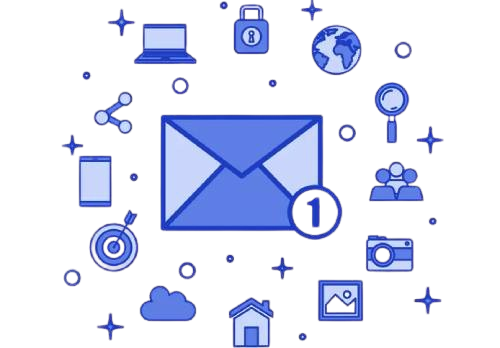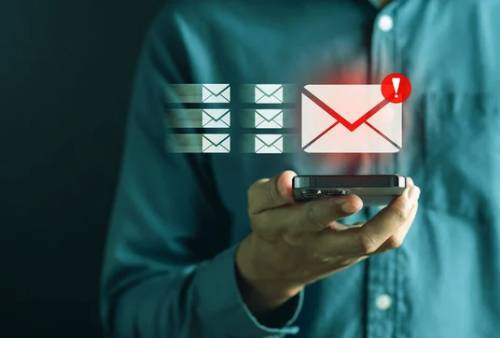Why DMARC Reporting Services Are Essential
For Effective Email Security
For Effective Email Security
In today’s interconnected world, email remains a critical communication tool for businesses, governments, and individuals. Unfortunately, it is also one of the most exploited channels for cyberattacks, phishing, and spoofing. Domain-based Message Authentication, Reporting, and Conformance (DMARC) is a protocol designed to protect organizations from such email-based threats. Among its features, DMARC reporting stands out as an indispensable tool for improving email security.
Understanding DMARC Reporting
DMARC reporting offers comprehensive information about the utilization of your email domain on the internet. This feature is crucial for detecting any unauthorized activities involving your domain and for maintaining adherence to DMARC regulations. The reports generated fall into two categories: aggregate reports and forensic reports.
Aggregate Reports
Aggregate reports compile the authentication outcomes for every email dispatched under your domain. These reports present an overview of key information, such as the total emails sent, the IP addresses involved, and the alignment status of SPF (Sender Policy Framework) and DKIM (DomainKeys Identified Mail) records. By reviewing these reports, administrators are able to recognize valid email sources and detect any unusual behavior.
Forensic Reports
Forensic reports provide a detailed analysis of specific emails that do not pass DMARC checks, offering in-depth insights. They contain email headers and additional metadata, which assist administrators in examining possible security breaches or unauthorized domain usage. These reports are especially valuable for tackling advanced attacks.

The Importance of DMARC Reporting Services
DMARC reporting services streamline the management and analysis of DMARC information. In the absence of these services, organizations would need to navigate through extensive amounts of unprocessed data from various sources, a task that can be daunting and prone to mistakes.
Enhanced Visibility
DMARC reporting services provide detailed dashboards and visual representations that simplify the analysis of your domain's usage. These insights are vital for detecting unauthorized access, configuration errors, or weaknesses in your email security measures.
Threat Mitigation
Organizations can take a proactive stance against threats like phishing, spoofing, and impersonation by examining DMARC reports. These reports identify the origins of harmful activities, allowing for faster responses and more efficient mitigation strategies.
Policy Optimization
Organizations can configure DMARC policies to either "none," "quarantine," or "reject." Through reporting services, they receive valuable insights that enable them to refine these policies progressively. For example, as they build trust in their email authentication processes, they might transition from a "none" policy to a "reject" stance over time. Explore this webpage to find additional details.
Benefits for Different Stakeholders
DMARC reporting services are valuable not only for IT administrators but also for executives, legal teams, and marketing departments.
For IT Administrators
DMARC reports offer valuable operational information to IT teams, aiding them in strengthening their email systems, minimizing the chances of security breaches, and ensuring the integrity of their infrastructure.
For Executives
High-profile phishing attacks frequently target executives. To safeguard their accounts and avert reputational harm, DMARC reporting services play a crucial role by ensuring that their domains are not exploited for malicious purposes.
For Legal and Compliance Teams
Adhering to regulations like GDPR, CCPA, and HIPAA typically necessitates strong email security protocols. Utilizing DMARC reporting services showcases a commitment to safeguarding sensitive communications, an essential factor during legal and compliance evaluations.
For Marketing Teams
Email campaigns play a crucial role for marketing teams in connecting with their audience. By making sure that these marketing emails avoid being categorized as spam or phishing, they can enhance delivery success and safeguard their brand's image.

Challenges Without DMARC Reporting Services
Organizations that forego DMARC reporting services face numerous challenges. The absence of detailed insights makes it difficult to:
- Identify Threats: Without DMARC reports, it’s nearly impossible to detect unauthorized use of your domain. This lack of visibility increases the risk of phishing and spoofing attacks.
- Manage Complexity: Manually analyzing raw DMARC data is time-consuming and prone to errors. This complexity often results in misconfigurations and missed opportunities to improve email security.
- Measure Effectiveness: Organizations need data to measure the effectiveness of their email security policies. Without reporting services, they lack the feedback necessary to optimize DMARC implementation.
The Role of Automation in DMARC Reporting Services
Contemporary DMARC reporting solutions utilize automation to simplify the gathering and examination of data. By minimizing human mistakes, enhancing reaction times, and guaranteeing timely delivery of essential insights, automation plays a crucial role. Additionally, functionalities like instant notifications, continuous monitoring, and compatibility with other security systems contribute to increased operational effectiveness.